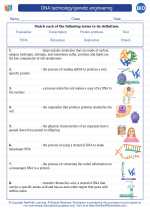Solid Waste: An Overview
Solid waste refers to any discarded materials that are not liquid or gas. It can include items such as paper, plastic, glass, metal, and organic waste. Effective management of solid waste is essential for environmental sustainability and human health.
Types of Solid Waste
- 1. Municipal solid waste (MSW): Household and commercial waste
- 2. Industrial waste: Waste generated from factories and manufacturing processes
- 3. Hazardous waste: Waste that poses a threat to human health and the environment
- 4. Electronic waste (e-waste): Discarded electronic devices and equipment
- 5. Construction and demolition waste: Debris from construction and renovation projects
Environmental Impact
Improper disposal of solid waste can lead to pollution of air, water, and soil. It can also contribute to greenhouse gas emissions and habitat destruction. Effective waste management practices are crucial for minimizing these negative impacts.
Waste Management Strategies
- 1. Source reduction: Minimizing waste generation at the point of origin
- 2. Recycling: Reusing materials to reduce the amount of waste sent to landfills
- 3. Composting: Converting organic waste into nutrient-rich compost for soil enrichment
- 4. Waste-to-energy: Converting waste into energy through incineration or other technologies
- 5. Landfill disposal: Safe and regulated disposal of non-recyclable waste in designated landfills
Study Guide
When studying solid waste, it's important to understand the different types of waste, their environmental impact, and the strategies for effective waste management. Here are some key points to focus on:
- Define solid waste and provide examples of different types of solid waste.
- Explain the environmental impact of improper solid waste disposal.
- Discuss the various waste management strategies and their importance in mitigating the environmental impact of solid waste.
- Compare and contrast the advantages and disadvantages of recycling, composting, and waste-to-energy technologies.
- Explore the role of government regulations and public awareness campaigns in promoting responsible solid waste management.
By mastering these concepts, you will gain a comprehensive understanding of solid waste and its significance in environmental conservation.
[Solid Waste] Related Worksheets and Study Guides:
.◂Biology Worksheets and Study Guides High School. DNA technology/genetic engineering
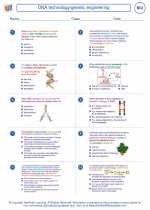
 Worksheet/Answer key
Worksheet/Answer key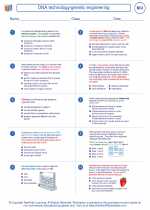
 Worksheet/Answer key
Worksheet/Answer key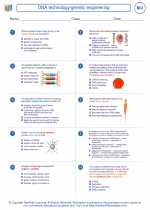
 Worksheet/Answer key
Worksheet/Answer key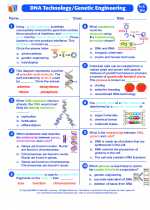
 Vocabulary/Answer key
Vocabulary/Answer key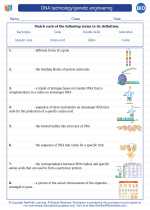
 Vocabulary/Answer key
Vocabulary/Answer key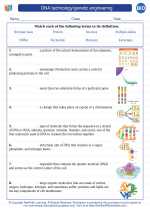
 Vocabulary/Answer key
Vocabulary/Answer key